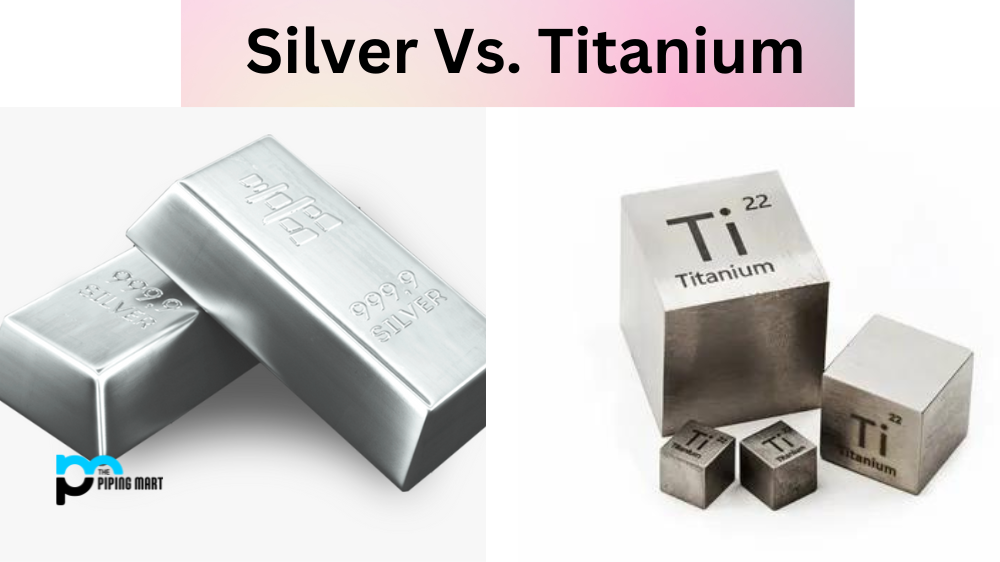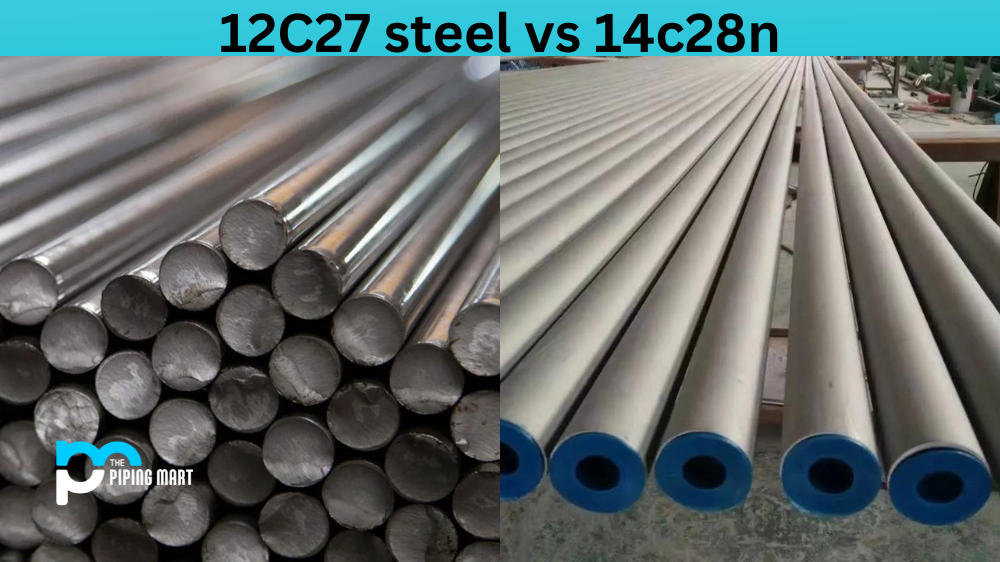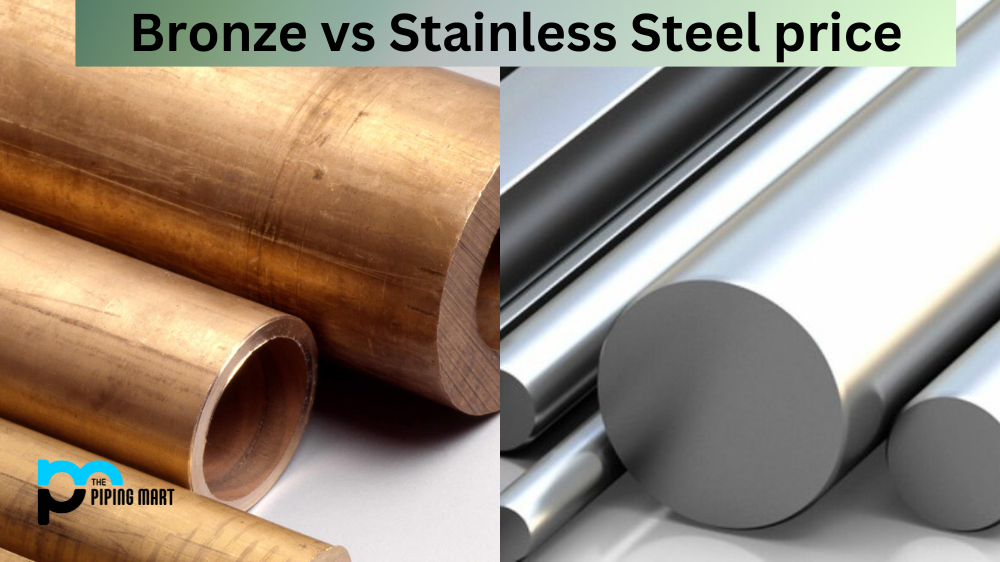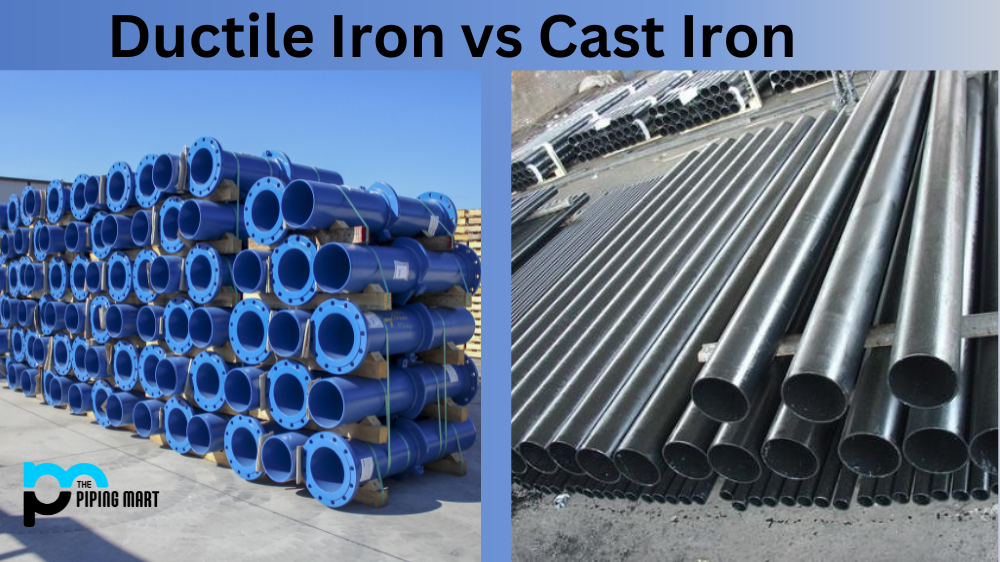Silver and titanium are two popular materials that can be used for a variety of applications. Whether you’re looking for jewelry, medical equipment, or something else entirely, it’s important to understand the differences between silver and titanium so that you can make an informed decision about which material is best for your needs. Let’s take a closer look at what makes these two materials unique.
What is titanium?
Titanium is a special type of metal that is not only incredibly powerful and durable but also lightweight. It’s known for its high strength-to-weight ratio and incredible corrosion resistance, making it an ideal material for a variety of applications and industries. Its nonmagnetic properties also make it a great choice in the medical world as it is safe to use inside the body. Companies often use titanium in manufacturing due to its low weight, high strength, and good electrical conductivity. Titanium can be alloyed with other metals like iron or aluminum to increase its mechanical properties, further improving its strength or durability for specific uses. Ultimately, titanium helps make difficult tasks possible, from aerospace engineering to orthopedic surgeries.
What is silver?
Silver is one of the oldest metals used by mankind, with a history stretching back thousands of years. It is often considered precious due to its monetary value, but it also possesses several remarkable properties that have long made it a valuable industrial and commercial commodity. Silver metal has a bright white luster and high reflectivity that make it popular in jewelry, decorative objects, and other goods. Furthermore, silver’s antibacterial properties are well-recognized; not only has it been used for centuries to preserve food products, but it is also used today in medical treatments and products. From coins to electronics components, silver metal plays an essential role in our lives today.
Silver vs Titanium: Differences
Silver vs Titanium: Price
One of the most important factors when shopping for materials is cost. In terms of price, silver tends to be slightly less expensive than titanium. However, it should be noted that the quality of both materials will vary depending on where they were sourced from and how they were manufactured. It’s important to keep this in mind when comparing prices between the two materials – in some cases, titanium may be cheaper than silver due to differences in quality levels.
Silver vs titanium: Color
Silver and titanium are two popular colors for jewelry, watches, and other fashion accessories. Silver is a traditional hue that is a classic choice of tones for refinement and elegance. Titanium tends to have a more modern feel that incorporates urban sophistication and chicness. Both metals can provide unique advantages stylishly, as well as in terms of durability due to titanium’s intense strength. However, when it comes to fashion items silver is often cheaper than titanium which helps make it the go-to option for those seeking affordability. That being said, the artful and cutting-edge designs available in machined titanium items offer a unique statement piece with an edgy touch. Whether one opts for the silver sheen or the titanium gleam, both hues will capture attention in their own special way.
Silver vs Titanium: Durability
When it comes to durability, titanium has the upper hand over silver. This is because titanium is much stronger and more resistant to corrosion than silver. If you’re looking for a material that will last a long time without showing signs of wear and tear, then titanium is the way to go. On the other hand, silver can still be a good choice if you don’t need something as durable as titanium – just keep in mind that it won’t stand up as well against wear and tear over time.
Silver vs Titanium: Applications
Both silver and titanium have wide-ranging applications – from jewelry making to medical equipment manufacturing. However, there are some key differences between the two materials that should be kept in mind when deciding which one is right for your project. For example, silver is often used for jewelry due to its malleability and affordability while titanium is preferred for medical uses because of its superior strength and corrosion resistance properties.
Conclusion:
When it comes to choosing between silver and titanium, several factors must be considered such as cost, durability, and application. While both materials offer unique advantages depending on their intended use case, it ultimately comes down to personal preference based on budget constraints, desired longevity of product use, or other specific needs you may have. Hopefully, this article has provided some insight into what sets these two metals apart so that you can make an informed decision about which one best suits your project requirements!

Pipingmart is a B2B portal that specializes in metal, industrial and piping items. Additionally, we share the latest information and information about materials, products and various types of grades to assist businesses that are involved in this business.




